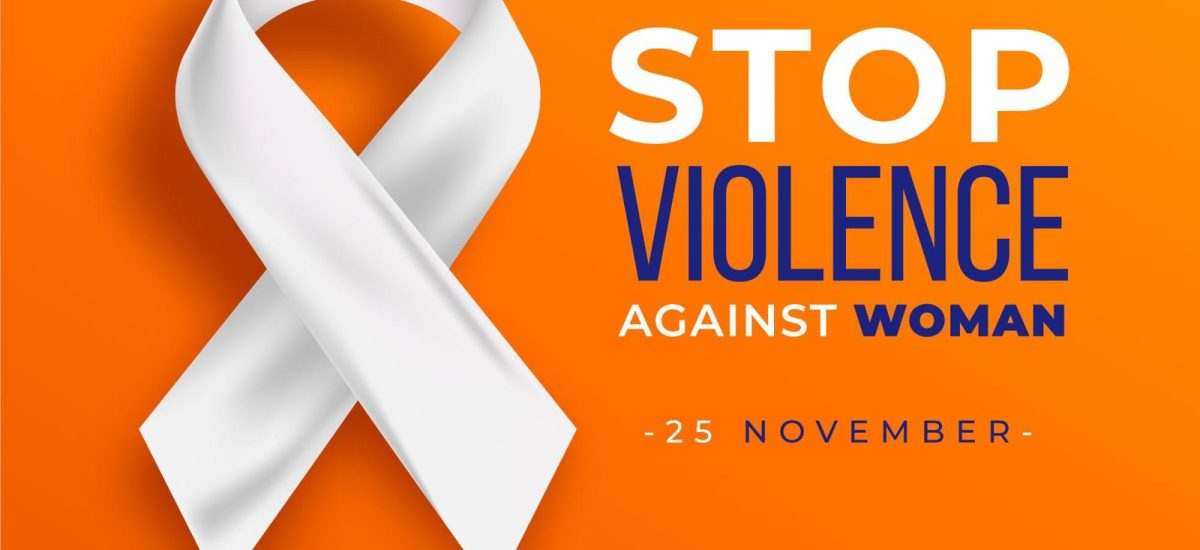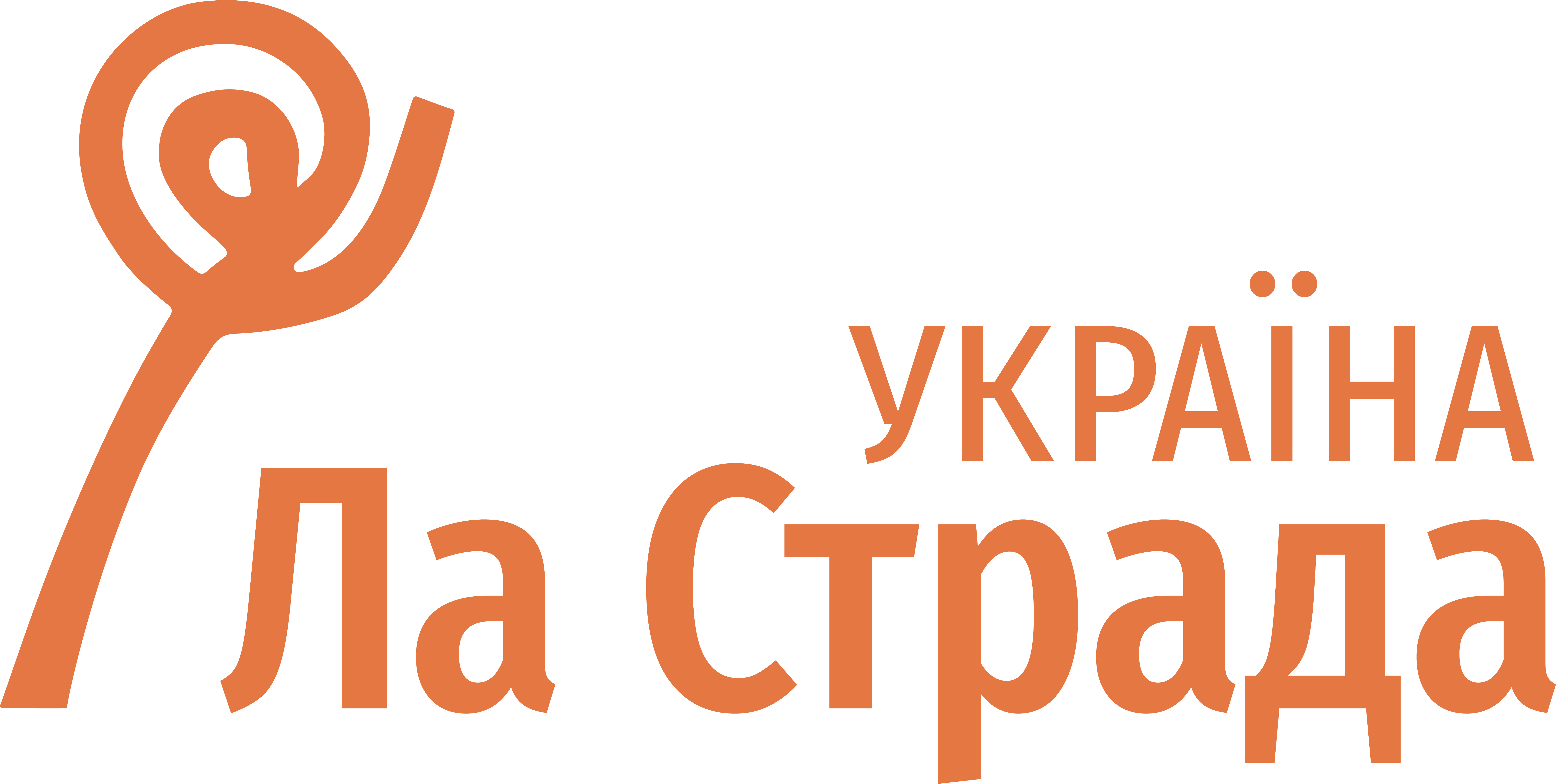Gender-Based and Domestic Violence in All-out War: Key Challenges and Powerful Countermeasures
On November 25, the international campaign "16 days of activism against gender-based violence" started, which is held annually from November 25 to December 10. This campaign is designed to draw the attention of the world community to the prevention of all forms of violence against women.
How the full-scale war reflected on the situation with gender-based and domestic violence in Ukraine, what challenges appeared in the field of combating this phenomenon, as well as the importance of the action "16 days against violence" and the ratification of the Istanbul Convention to combat gender-based violence in the context of full-scale war tells Kateryna Cherepaha, president of the "La Strada - Ukraine" organization.

How did the full-scale war affect the situation with gender-based, particularly domestic violence in Ukraine?
In crisis situations, all negative social phenomena are always exacerbated, and situations of violence, unfortunately, are no exception. This is confirmed by the Covid-19 pandemic, during which domestic violence and violence against women became so widespread and acute that it was called a shadow pandemic.
The same with full-scale war. It cannot be said that the number of calls, in particular to our hotline [National Hotline for the Prevention of Domestic Violence, Human Trafficking and Gender Discrimination] regarding cases of domestic violence and violence against women has increased compared to other calls. In percentage terms, the indicators are almost the same as in peacetime. But it must be understood that this war is spread over the entire territory of Ukraine, in fact there is not a single region or a single person that has not been affected in one way or another. Many restrictions have appeared in the victims' ability to seek help or report a case of violence. We believe that the number of victims is much higher, but due to a number of objective or subjective reasons, it is not possible to record all cases.
What factors influence the fact that it is now very difficult to record cases of domestic or gender-based violence?
First, during the war, the victims themselves pay less attention to this problem. Very often, women who suffer from gender-based or domestic violence think that their problems are not as important, scary and serious as what is currently happening in the country - the seizure of territories, mass murders, constant rocket or artillery attacks, destruction of critical infrastructure etc.
Secondly, some victims do not have the physical opportunity to seek help because they are under occupation or in recently de-occupied communities, where the relevant structures that should respond to cases of domestic violence or provide assistance to victims of it have not yet resumed their work. Or, as in the situation that has been relevant for almost all Ukrainians in recent weeks, due to problems with electricity supply, the victims simply do not have a connection to ask for help.
Third, many do not identify domestic violence or gender-based violence as such.
This is related to the factors that depend on the victims. But there are also factors that relate to certain structures that must respond to incidents of violence.
It must be understood that objectively all the forces of our state are now directed at its protection from the Russian invaders. But there are cases when the victims turn to certain services with their problem, and in response they hear "it's not as serious as the fact that there is a war in the country", "we don't have time for your domestic conflicts", "solve it somehow yourself » etc.
Since February 24, the mass media have repeatedly reported cases of sexual violence by the Russian occupiers against Ukrainians. How can you comment on the situation of sexual violence during war?
Situations of sexual violence related to war are another challenge for Ukraine. Let's not forget that the war has been going on since 2014, and during that period there have also been incidents of sexual violence. But now the scale is much bigger.
The situation with the number of reports of this type of violence is the same as with domestic or gender-based violence - the recorded numbers do not even remotely reflect the actual number of victims.
However, in a situation of sexual violence, everything is complicated by the fact that the victims do not dare to speak about it because of fear for their lives, fear of condemnation, fear of becoming the object of gossip that often spreads in small towns or villages, because of stereotypes that function in society, because victim-blaming – blaming the victim: "she didn't evacuate", "she didn't look the way", "she didn't dress the way", etc.
Another problem is that not all victims, witnesses, and various response structures and subjects know how to identify sexual violence. Usually sexual violence is considered rape by default. But in fact, this concept is much broader and includes both forced exposure, and actions of a sexual nature, not related to penetration, and forcing to observe sexual violence against another person, etc. Not knowing this, the victims will not even think to declare what happened to them.
In your opinion, after the end of the war, there will be less cases of gender-based or domestic violence?
The problem of gender-based or domestic violence is not something new for our society. It was relevant before the start of a full-scale war, it is relevant now, and, unfortunately, it will remain so after our victory.
This year, the Istanbul Convention was ratified in Ukraine. What do you see as the value of this document for our country in the context of a full-scale war?
The provisions of the Istanbul Convention apply both in times of peace and in times of war. This gives another signal that the problem of protecting women from gender-based and domestic violence is relevant in all circumstances.
In times of war, the vulnerability of women and girls to gender-based violence increases dramatically. Therefore, the ratification of the Istanbul Convention, further steps to bring the national legislation in line with its provisions should be the important answer to the challenges faced by women and girls in the conditions of war.
Another important point of the ratification of the Istanbul Convention in the context of a full-scale war is that one of the key directions it sets is the support and creation of specialized services for women and girls who suffer from gender-based or domestic violence. This is critical in a wartime environment, given that many facilities are damaged or unusable and many services needed by victims are limited or unavailable.
In the context of a full-scale war, what is the importance of the international action "16 days against violence"?
The action is designed to draw attention to the situation of violence against women, which, unfortunately, is a problem not only of Ukraine, but of the whole world as a whole. During this action, the efforts of all possible subjects are consolidated: civil society, the state, international institutions, public organizations, mass media, etc.
This consolidation shows how global the problem of violence is in the world, and violence against women in particular, and why it is important to talk about it, especially in Ukraine, especially during a full-scale war. After all, the war "exposes" the problems that existed in peacetime and strengthens them.
Whether in times of peace or crisis, women and girls remain the population group most vulnerable to gender-based and domestic violence. Holding the action "16 days against violence" emphasizes that no events in the country, crisis situations or even war, can diminish the fact that violence exists, that violence is a gross violation of human rights, and that it must be responded to and take all necessary measures to ensure, protect and provide assistance to women who suffer from gender-based violence.
Text: Kateryna Horvat

